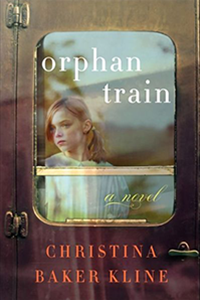The phone call came in the middle of Christmas evening, freeing us from a hilarious/painful card game, and bringing life and family into clear focus. My Uncle Stan had waited for two of his three sons to arrive and wish him Merry Christmas before escaping the cancer he's been fighting for two years. As with any cancer death, there is relief in the sorrow. Uncle Stan was clear-minded, appreciative of a life well-lived and grateful for the love that surrounded him. He had relatively little pain, and his wife and other care-givers were spared many of the ongoing indignities and cruelties of cancer - the pain, the loss of bodily control, the dwindling self.
And still, he is gone. My cousins will again bury a parent taken by cancer. My mom and her surviving brother have lost the big brother who looked out for them all their lives. Last evening when my mom returned to the table after the phone call from my cousin, she said to her surviving brother, "it's just the two of us now." And my sister quickly pointed out that it's the two of them, and their spouses; their children and grandchildren; their nephews and nieces and friends old and new, some of whom grew up with my parents and uncles in the kind of small town that creates friends-who-are-family. They have lost their brother, and they are not alone.
We will all mourn Uncle Stan in our way. I am reminded again of the circles of grief - to offer support to the inner circles and accept support from circles further out. For me, I have lost one of the several men in my family who are both traditionally masculine - provider, fixer, doer - and gentle souls - a humourist, a musician, a man who felt and loved and displayed his love. When Uncle Stan said "hi sweetheart, how's it going; how are your boys" they were never idle questions. He was the father of sons, the grandfather of grandsons, and knew what it means to raise men. He also never failed to ask, with genuine hope and interest, if I had written anything new. I thought he asked me because he was loving, but then my mom said he asked her often about my writing as well, and ... maybe it makes no difference to anyone else anywhere, but it mattered to me that he was out there waiting to read what I wrote.
Yesterday was Christmas, and I was reminded, once again, that the best part of Christmas is still my family. An easy, laughter and gift-filled morning with my youngest son, one sister & her partner, and my parents. A small quiet interlude, then dinner at which we were joined by an aunt, uncle and cousin. Much food, slightly less wine, and even more laughter filled my parents' home.
And then the phone call we all expected and did know whether to dread or hope for came, and the voices that had rung with laughter became our comfort. Family. It is our beginning, and if we are truly blessed it is there at the end.
And so, to my sweet loving Uncle Stan I say, God rest ye, merry, gentle man.
Just a little video from 2014 of my mom singing with her brother - sorry my voice is louder than theirs.


















